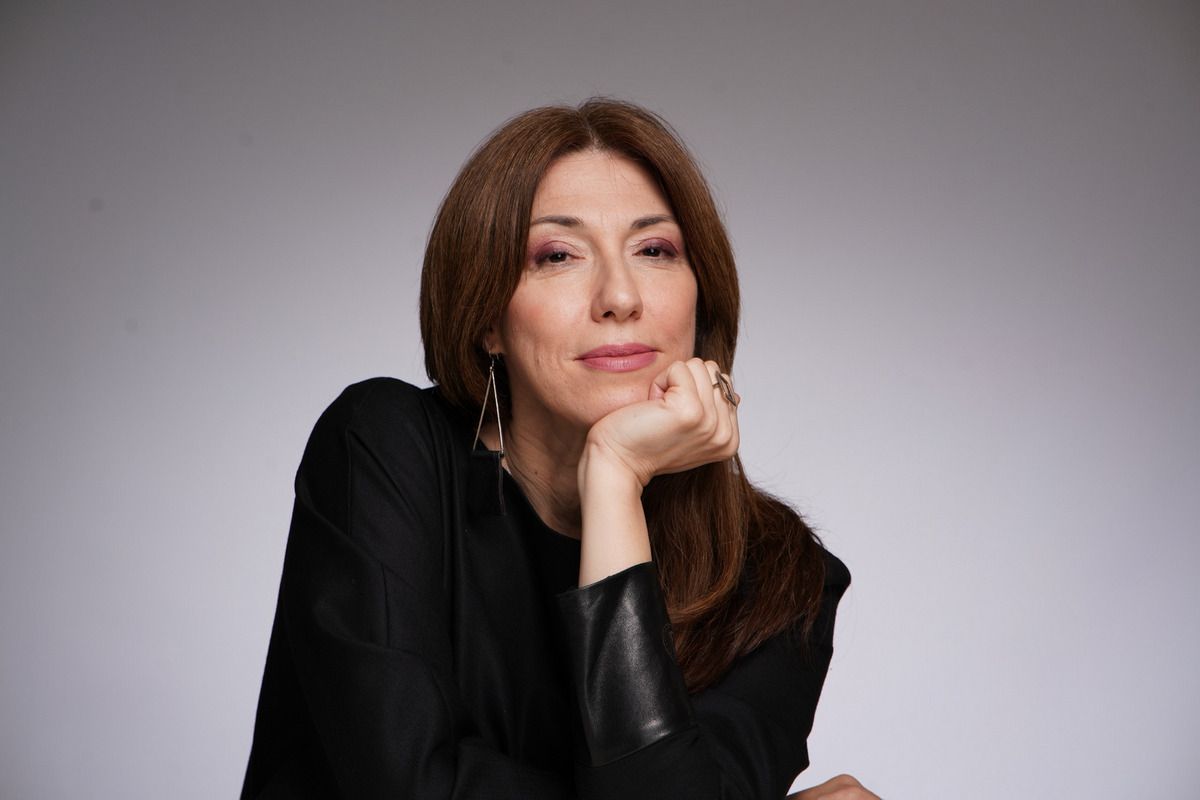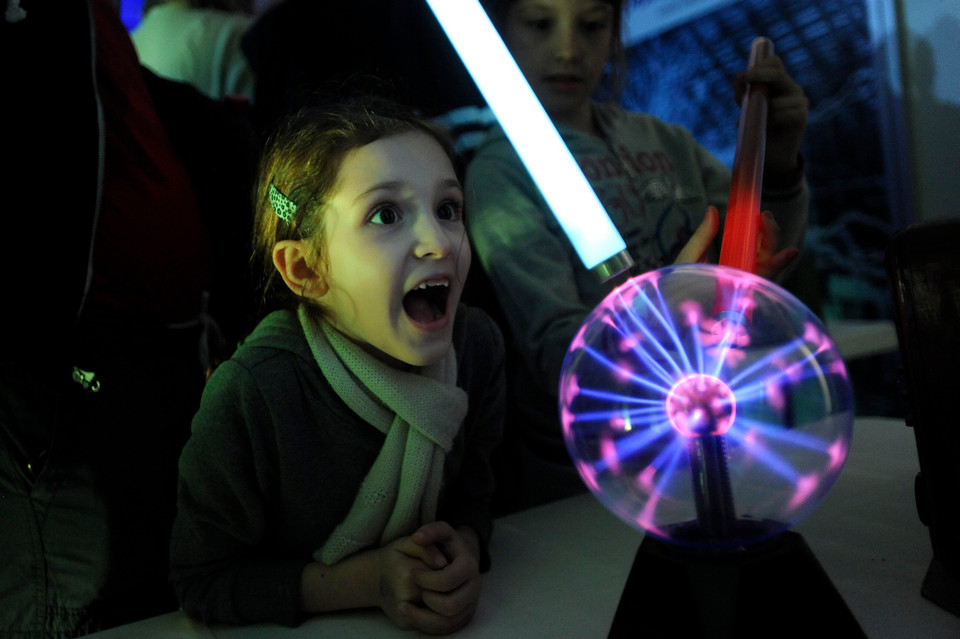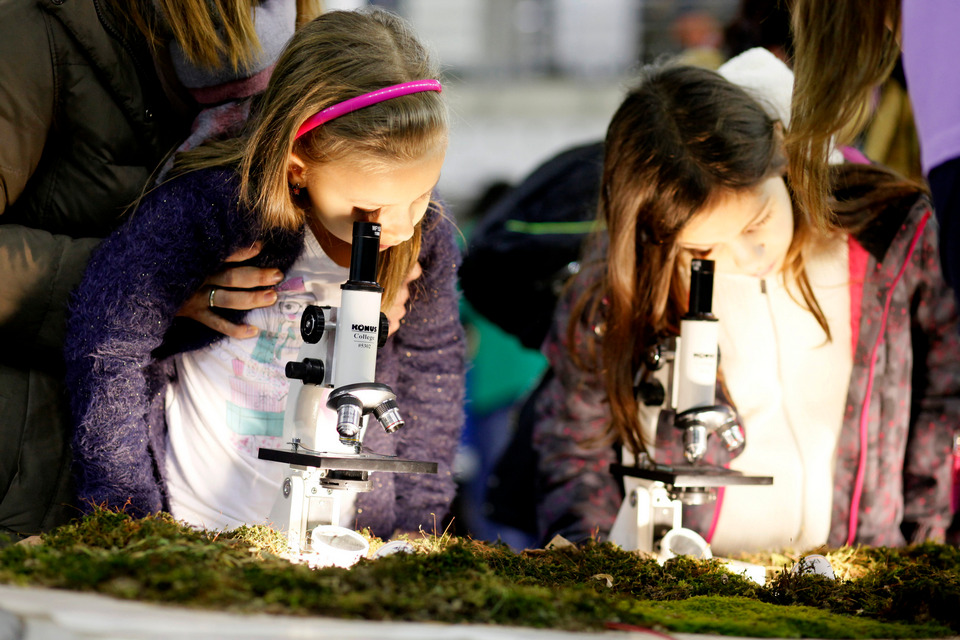Science Festival will be held from 4- 6th of May

After a two-year break, under the slogan “A New Era”, the sixteenth Science Festival will be held from the 4th of May until the 6th of May in its recognizable format at the Belgrade Fair.
This year’s Science Festival will host more than 800 participants from Serbia and abroad, who will present more than 170 interesting science programs for science lovers in four program units. Applications for organized visits to the Festival are open for all interested primary and secondary schools in Serbia. The theme of this year’s Science Festival is – A New Era, an era that has come to us quickly thanks to the global pandemic.
Behind the Science Festival stands a small but very professional team that previously left a big mark in the organization of Museum Night, another great event that made an impact on the cultural and social life of Belgrade and Serbia. We are talking to the director of the Science Festival, Ana Petrović, about the way in which they coped with numerous challenges and set new standards of quality and success.
Nowadays, how difficult is it to build a recognizable image and market science and education as something that is attractive and fun?
Actually, it is not as difficult as we feared in the beginning. When we organized the first Science Festival in 2007 under completely impossible conditions, we had no idea what kind of machinery we had set in motion. From the start, we had a vision of a big city festival, but we never dreamed of how much this project would contribute to the promotion and popularization of science in Serbia.
In the first five years, our Science Festival became one of the ten largest festivals in Europe, and more than 20 science festivals throughout Serbia have been modeled after it. Today, it has become quite normal for a high school or an elementary school, or a university to organize a local science festival.
Our Science Festival became one of the ten largest festivals in Europe
As a consequence of the Science Festival, with more or less of our help, science festivals were created in Novi Sad, Niš, Požega, and Požarevac. As the national Festival we offer the chance for teams from all over Serbia to come to the Festival, show what they know, and learn something new as well. We have paved the way for many new events, such as the Researcher’s Night, but also for many that deal with the promotion of individual scientific fields as well.
On the other hand, the scientists themselves do not participate enough in the public life of the country, the political elites do not ask of them enough and they do not have enough space in the media. Scientists are generally the smartest people any country has and it is not uncommon for them to be consulted outside of their primary activities. Our society would be much better off if scientists were consulted more.

How was it for you at the beginning when you just founded the Festival, and how is it today? Where do you see opportunities for growth and development and whose support (which sectors) is important to you?
Since the beginning, the Science Festival has been primarily financed with its own funds, that is, with money from sold tickets and funds from commercial sponsors. From the very beginning, we have received great help and understanding from foreign embassies and cultural centers, and I would especially like to single out the French Institute in Serbia and the Austrian Cultural Forum. There is a long tradition of science promotion in these countries and their experiences are valuable to us.
However, when we talk about social responsibility, i.e., investing money in culture and science by large companies, the situation is unfortunately very challenging. There are no systematic benefits and only the strongest companies invest in this type of promotion. A stronger connection between industry and science is needed, and this is one of the secondary goals of the Festival.
Although our projects are recognized as extremely well covered by the media, their resources are still not used enough for the promotion of commercial brands. As someone who has seen how much Science Festivals can contribute to the image of European cities and improve the tourism sector, I can only hope that one day we too will be able to offer Europe such quality brands. Of course, this is not possible without the help of companies that have similar visions.
Also, it is very important to be tasteful and not cross that “thin line” that separates us from commercialization. No museum will be repainted in the colors of the sponsoring brand or associated with inadequate promotion.
What does the organization of such a big event like this look like? How big is your team and what does the cooperation on specific programs look like working with scientists, teachers and professors who are the focus of the event, and with whom you plan activities at the Science Festival?
We are a team of people from the field of science, but also marketing, production, film, design… We envision the event before it is actually made and therefore work as producers for all participants. Also, we find inspiration during our trips where we meet people who do similar or the same jobs, and with whom we get along great. The Festival was modeled after other festivals around the world, but a lot of work was done and is still being done to adapt to the specifics of our environment.
A stronger connection between industry and science is needed
Our collaborators from scientific institutions come to us with topics and ideas that we turn into realistic interactive exhibitions. For the past 16 years, we have worked a lot and perfected ourselves in the field of science promotion, so we have knowledge and mechanisms that can materialize any topic in a way that is receptive to the audience.
Which audience is your main target group – are they primarily young people who are in need of science popularization, or are adults also important to you, not necessarily just as parents who follow their children?
Our visitors are mostly young people and popularization of science and the scientific way of thinking is the primary goal of the Festival. In previous years, we also had evening programs for the adults and debates with a serious cross-over of opinions from our leading scientists.
On the other hand, we are trying to have the whole month around the Festival in the media dedicated to science, and thus to point out to the adults and decision-makers the importance of science in everyday life. If we pull back the curtain, we usually see that science is behind most of the things around us. Investing in knowledge and desire for education among adults would help strengthen public opinion, the economy, and the corporate climate in Serbia in the long term.

As an organization that is largely dealing with education, do you see your Festival as a part of the educational system in some way? What kind of relationship do you have with primary and secondary schools, universities, and how much potential does the Science Festival itself have to contribute in this field?
In any case, the Science Festival is a part of the educational system, which the Ministry of Education has recognized and helps the Festival to a great extent. The Festival is a place where textbook experiments are performed live and students are given the opportunity to participate in them themselves. A large number of school science festivals in Serbia prove that.
Faculties of practically all universities in Serbia are participants in the Festival. This year, 57 institutions with more than 180 programs and 800 demonstrators are participating in the program, and the interest to participate was really high, so unfortunately, we had to reject some participants or postpone them for next year.
How do you see the future of the Festival, i.e., its mission and vision, first of all, bearing in mind the general digitization of not only education but also life in general?
We feel like the Festival is on the right track and that the pause caused by the pandemic has shown that personal contact is necessary for education. This was especially evident in the fundamental sciences: it was really difficult for elementary school students who encountered, for example, chemistry and physics for the first time. In the first year of the pandemic, we created an online edition of the Festival and although it had participants from nine countries and a lot of interesting programs, its impact was limited.